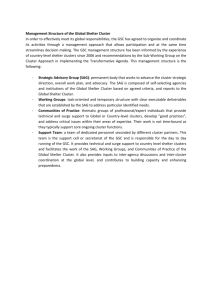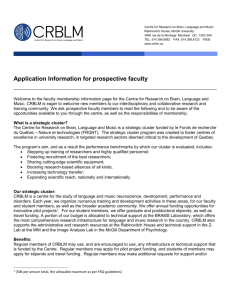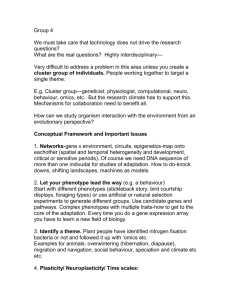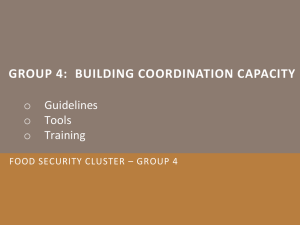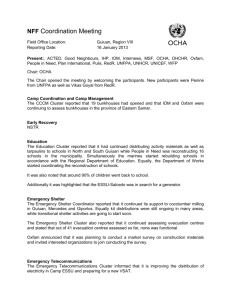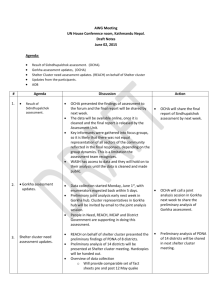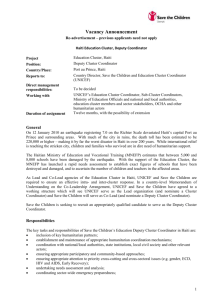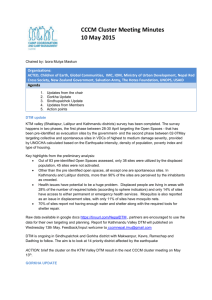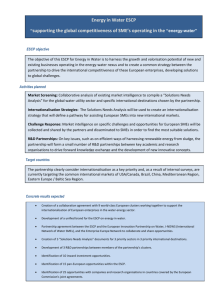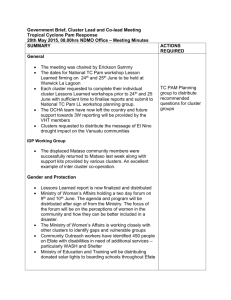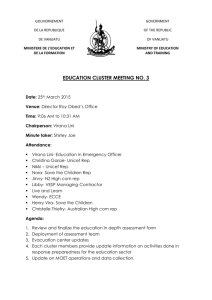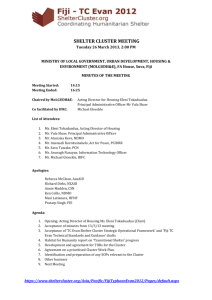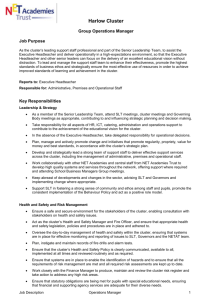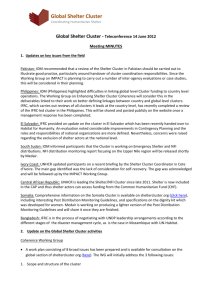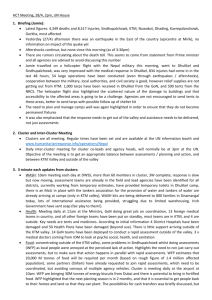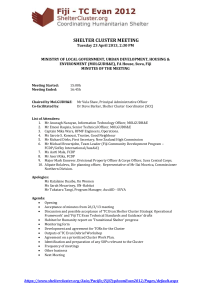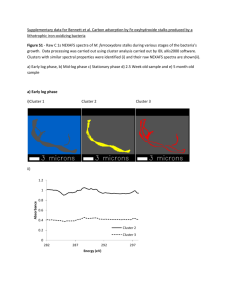Cluster performance eval form 091126 Leadership
advertisement
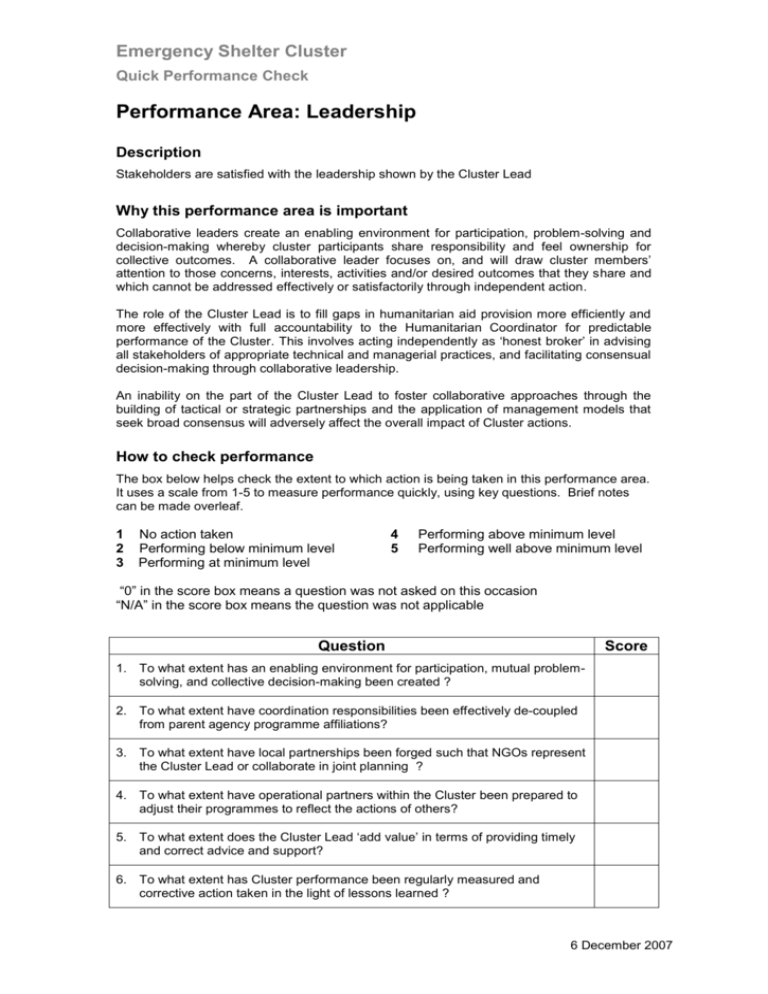
Emergency Shelter Cluster Quick Performance Check Performance Area: Leadership Description Stakeholders are satisfied with the leadership shown by the Cluster Lead Why this performance area is important Collaborative leaders create an enabling environment for participation, problem-solving and decision-making whereby cluster participants share responsibility and feel ownership for collective outcomes. A collaborative leader focuses on, and will draw cluster members’ attention to those concerns, interests, activities and/or desired outcomes that they share and which cannot be addressed effectively or satisfactorily through independent action. The role of the Cluster Lead is to fill gaps in humanitarian aid provision more efficiently and more effectively with full accountability to the Humanitarian Coordinator for predictable performance of the Cluster. This involves acting independently as ‘honest broker’ in advising all stakeholders of appropriate technical and managerial practices, and facilitating consensual decision-making through collaborative leadership. An inability on the part of the Cluster Lead to foster collaborative approaches through the building of tactical or strategic partnerships and the application of management models that seek broad consensus will adversely affect the overall impact of Cluster actions. How to check performance The box below helps check the extent to which action is being taken in this performance area. It uses a scale from 1-5 to measure performance quickly, using key questions. Brief notes can be made overleaf. 1 2 3 No action taken Performing below minimum level Performing at minimum level 4 5 Performing above minimum level Performing well above minimum level “0” in the score box means a question was not asked on this occasion “N/A” in the score box means the question was not applicable Question Score 1. To what extent has an enabling environment for participation, mutual problemsolving, and collective decision-making been created ? 2. To what extent have coordination responsibilities been effectively de-coupled from parent agency programme affiliations? 3. To what extent have local partnerships been forged such that NGOs represent the Cluster Lead or collaborate in joint planning ? 4. To what extent have operational partners within the Cluster been prepared to adjust their programmes to reflect the actions of others? 5. To what extent does the Cluster Lead ‘add value’ in terms of providing timely and correct advice and support? 6. To what extent has Cluster performance been regularly measured and corrective action taken in the light of lessons learned ? 6 December 2007 Emergency Shelter Cluster Quick Performance Check AVERAGE SCORE Comments To which stakeholder group do(es) the Respondent(s) belong ? (tick box) Cluster Lead (Agency) Other Cluster (i.e Not Shelter) International NGO National NGO Community-Based Organization Inter-Cluster Coordinator (OCHA) National Government Local Authority Beneficiary Donor Red Cross/Crescent National Soc. Other (please state) Date Assessment Completed : Keywords: Adherence to Standards, Appropriate, Equity, Process, Shelter provision, Vulnerability References Sphere: Common Standard 1: Participation HAP: Principle 4, 5, Quality Benchmark 3 Mango: Accountability to Beneficiaries Checklist 1.7, 1.8, 3.0, 5.2 UNHCR: Tool for Participatory Assessment ECB: Good Enough Guide, Section 1: Involve people at every stage. Coordination Sud : Le rôle des populations 6 December 2007

